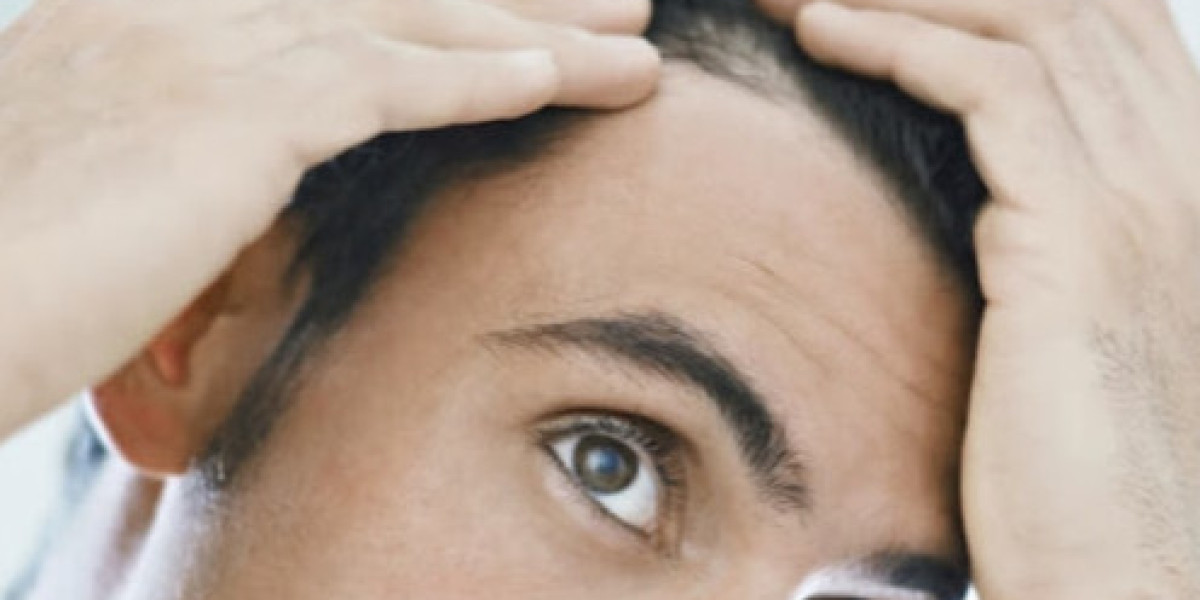Hair is more than just part of our appearance—it’s a symbol of femininity, identity, and confidence. For many women, experiencing hair loss during menopause can be shocking, confusing, and emotionally distressing. It may begin subtly with thinning at the crown or a widening parting, but over time, it can affect how women feel about themselves in a deeply personal way.
This article takes a closer look at the complex relationship between female hair loss and menopause, why it happens, what can be done about it, and how women can take back control of their hair—and self-esteem—during this transformative phase of life.
Why Does Menopause Cause Hair Loss in Women?
Menopause typically occurs between the ages of 45 and 55 and marks the end of a woman’s reproductive years. During this time, the body undergoes significant hormonal shifts. The most critical changes include:
Decline in Oestrogen and Progesterone: These hormones help keep hair in its growing phase for longer. As their levels drop, hair becomes thinner, grows slower, and is more prone to shedding.
Increase in Androgens: Male hormones like testosterone may become more dominant as female hormones decline. Androgens can shrink hair follicles, especially at the crown, resulting in female pattern hair loss.
This hormonal imbalance disrupts the normal hair growth cycle, leading to gradual thinning, slower regrowth, and increased hair fall.
Common Signs of Hair Loss During Menopause
Hair loss during menopause doesn’t usually lead to bald patches like in men. Instead, it shows up in more subtle ways:
Thinning along the crown or a broader parting line
Decreased hair volume and density
More hair falling out during brushing or washing
Hair becoming finer, brittle, or dry
Difficulty maintaining hairstyles due to reduced volume
For some women, these changes come on slowly, while others may notice a more sudden shift during perimenopause (the transitional stage before menopause).
The Emotional Impact
Experiencing hair loss during menopause can be incredibly emotional. Many women feel that their hair is a reflection of their youth, beauty, and identity. Losing it can lead to:
Low self-esteem
Social anxiety or embarrassment
Depression or withdrawal
Increased stress, which can further contribute to hair fall
Understanding that hair loss during menopause is both common and treatable can help ease some of these emotional burdens.
Effective Treatments for Female Hair Loss and Menopause
The good news is that hair loss during menopause doesn’t have to be permanent. A variety of treatments are available—ranging from lifestyle adjustments to professional therapies—that can slow down or reverse hair thinning.
1. Topical Minoxidil (Rogaine)
This is one of the most widely recommended treatments for female pattern hair loss. It works by improving blood circulation to the scalp and revitalising hair follicles. With consistent use, many women experience thicker, fuller hair within 4–6 months.
2. PRP (Platelet-Rich Plasma) Therapy
PRP therapy is gaining popularity for treating menopausal hair loss. A small sample of your blood is processed to extract plasma rich in growth factors, which is then injected into the scalp. It promotes natural regrowth and strengthens existing hair, making it one of the most natural and non-invasive options available.
3. Hormone Replacement Therapy (HRT)
In some cases, doctors may recommend HRT to balance oestrogen and progesterone levels. This can help reduce menopausal symptoms, including hair thinning. However, it’s not suitable for everyone and should be discussed with a GP or hormone specialist.
4. Nutritional Support
Menopause can lead to deficiencies in vitamins and minerals vital for hair health. Iron, vitamin D, zinc, and biotin are especially important. Blood tests can determine any deficiencies, and supplementation can be an easy and effective fix.
5. Low-Level Laser Therapy (LLLT)
This non-invasive treatment uses red light to stimulate hair follicles and improve scalp blood flow. Available as in-clinic treatments or home-use devices like laser caps, LLLT is safe, pain-free, and suitable for menopausal women.
6. Stress Management
Stress contributes to hormonal imbalance and hair shedding. Yoga, meditation, regular exercise, and quality sleep can all help restore hormonal balance and support hair growth naturally.
Lifestyle Tips to Improve Hair Health During Menopause
In addition to clinical treatments, simple lifestyle changes can greatly benefit hair health:
Eat a protein-rich diet: Hair is made of keratin, a protein. Include eggs, fish, lean meat, and legumes in your diet.
Hydrate and nourish: Drink plenty of water and use hydrating scalp treatments or oils like argan and coconut.
Avoid heat and harsh styling: Minimise blow-drying, straightening, or tight hairstyles that stress hair follicles.
Use gentle, sulfate-free shampoos: Harsh chemicals can irritate the scalp and cause breakage.
Massage your scalp regularly: This improves circulation and can help stimulate dormant follicles.
When to Seek Help
If you notice ongoing hair thinning or patchy loss that doesn’t improve, it’s important to consult a specialist. A trichologist, dermatologist, or hair restoration clinic can help identify the root cause and offer tailored treatments. Clinics in the UK, including in Yorkshire and Leeds, now specialise in female hair loss and menopause, offering holistic and discreet support to women in midlife.
A professional may carry out:
Scalp analysis
Blood tests to check hormone and nutrient levels
Personalised treatment plans combining clinical and home-based options
Real Women, Real Results
Many women who have addressed their menopausal hair loss through early intervention and consistent treatment report not only physical improvement but also emotional relief. Regaining control over your appearance can help you feel like yourself again—empowered, confident, and radiant.
Female hair loss and menopause are closely linked, but the good news is that it’s not something you simply have to accept. With the right knowledge, professional help, and lifestyle changes, you can manage hair thinning and support regrowth in safe and effective ways.
Most importantly, you are not alone. Millions of women go through this transition, and help is available. Whether you’re just starting to notice changes in your hair or have been struggling silently, now is the perfect time to take action and reclaim your confidence—strand by strand.







